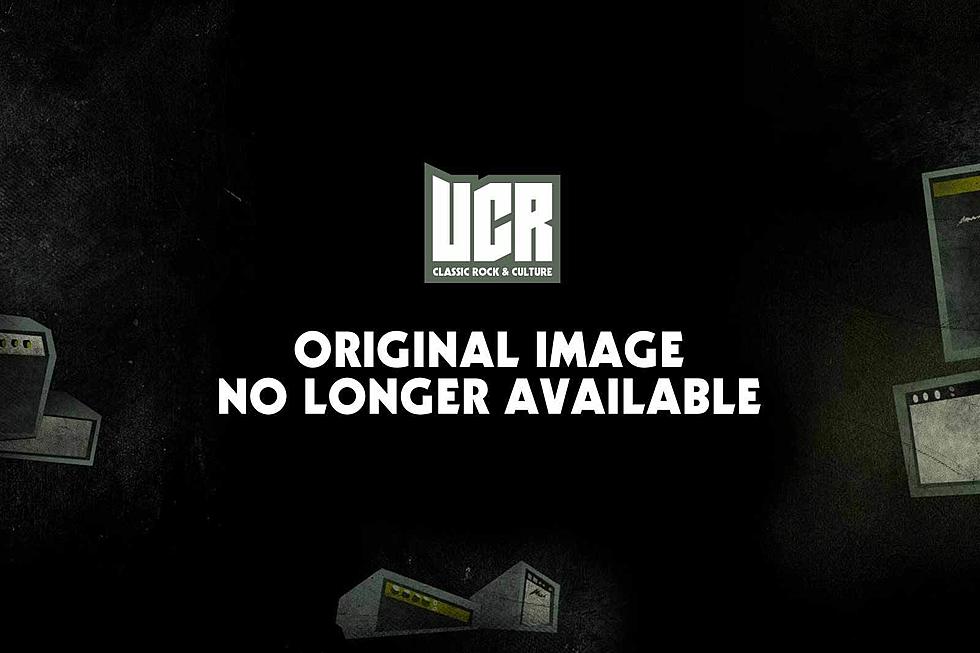
Stick It and Suck with Free Tickets As Def Leppard’s ‘Hysteria’ Turns 25
When Def Leppard began to write for the follow-up to their 1984 multi-platinum breakthrough ‘Pyromania,’ the group had no idea what a monumental task lay ahead of them. The album would eventually survive through four long years of changes, re-writes, re-recordings and personal traumas to become the defining album of the band’s career.
Def Leppard plays Darien Lake on August 17 with Poison and Lita Ford, and Jack FM will be giving away free tickets to see the band tomorrow morning (Aug. 4) at 9 am at the Walden Galleria to the first 100 cars to stop by. We'll also be giving you an ice cream drum stick to suck. The Darien Lake concert later this month is sure to feature a heavy dose of the "Hysteria" Album.
25 years after the release of "Hysteria", it's amazing to think what the musicians had experienced when recording the album. A dramatic upheaval in their lives with the sudden success of ‘Pyromania,’ essentially going from living at home to selling six million albums with little transition. The resulting financial success meant the group had to leave England to escape the punitive tax rates there, so directly following the tour for ‘Pyromania’ Def Leppard moved to Dublin to live as tax exiles while writing for the next record, which they intended to call ‘Animal Instinct.’
Living all together in the same house, the musicians, unsure how to begin, made little initial progress, dragging the writing sessions out while partying far too heavily. When they finally did have some songs ready to record, they were dealt a serious blow when producer Mutt Lange, who had helmed the board for ‘Pyromania,’ dropped out of the project, claiming exhaustion after several years of back-to-back albums.
Def Leppard turned to Jim Steinman, best known for writing Meat Loaf’s ‘Bat Out of Hell’ album. Steinman and the band clashed immediately on the direction for the new material, with Steinman wanting to capture a raw, almost live feel and the band wanting to further explore the near-perfect audio production that had characterized the previous record.
“‘Pyromania’ was already near-perfect, so they had to go one step further,” Rolling Stone editor David Fricke recalled in an episode of ‘Classic Albums.’ But Steinman vehemently disagreed, and the sessions broke down so badly that Def Leppard wound up buying him out of his deal, creating a huge budget shortfall before recording a single note of usable material.
The band took another hit on New Year’s Eve in 1984, when drummer Rick Allen flipped his car, sustaining terrible injuries. Narrowly escaping with his life, the drummer lost his left arm in the crash, and needless to say, the recording sessions halted immediately. The group decided to stand by their bandmate, losing an entire year while he built a custom kit that allowed him to trigger drum parts with his feet and learned to play all over again from scratch.
The album finally turned around when Mutt Lange came back on board as producer, but the band still had a long, painstaking recording process ahead of them as the notorious perfectionist meticulously constructed the record out of bits and pieces of many multiple takes. Lange and the band agreed that the new album needed to be an amalgam of the group’s hard rock roots and a new element of pop melody that emphasized advanced recording techniques like MIDI and sampling, as well as many layers of overdubbing.
“The idea was that this record was not gonna come out until it was an absolute bona fide classic record,” singer Joe Elliott told VH1.
Recording in that slow and time-consuming manner resulted in an album that was a major step forward for the band, but also cost so much to finish that Def Leppard were under the gun to sell a staggering five million units just to break even. The finished product was revolutionary for its time, featuring now-timeless tracks like ‘Animal,’ ‘Pour Some Sugar on Me,’ ‘Love Bites’ and ‘Armageddon It.’ But it came at a great cost to the band, both financially and personally. They chose to call the new album ‘Hysteria’ at Rick Allen’s suggestion. It was a reflection of the madness in their own lives.
“The upside was, the record sounded great,” Allen stated of the recording. “The downside was, everybody’s lives were going to sh-t.”
Finally released on August 3, 1987, ‘Hysteria’ was an immediate hit in England, but received a cooler reception in America, where Def Leppard released ‘Women’ as the first single instead of ‘Animal,’ the lead single in the rest of the world. A year would pass before the album’s fourth single, ‘Pour Some Sugar on Me,’ finally placed ‘Hysteria’ at No. 1 in America. The album dominated the world charts for the better part of the next three years, eventually selling 20 million copies worldwide and catapulting Def Leppard from a breakthrough act to one of the most successful rock groups of their generation.
The band would never top it, as guitarist Steve Clark died in 1991 from a combination of alcohol and prescription drugs. Def Leppard continued on with great success, but ‘Hysteria’ remains not only the defining album of their career, but one of the defining rock records of their generation.
The album’s legacy is impressive; ‘Hysteria’ was ranked at No. 472 in Rolling Stone’s 500 Greatest Albums of All Time in 2004, and it is the 51st best-selling album in US history. The album’s innovative production elements became industry standard, giving rise to a whole new genre of rock-pop groups trying to follow Def Leppard’s crossover success. Songs from ‘Hysteria’ continue to be heard on radio, in commercials and in movies, most recently with Tom Cruise performing ‘Pour Some Sugar on Me’ in ‘Rock of Ages.’
Critics have noted the album’s historical importance as well. Allmusic.com lauded ‘Hysteria’ in a five-star review, calling it “arguably the best pop-metal ever recorded.”
More From 92.9 WBUF


![Jack’s Stick It and Lick It Summer Tour Doles Out KISS, Motley Crue Tickets [PICTURES]](http://townsquare.media/site/17/files/2012/09/DSC_0093.jpg?w=980&q=75)

![Stick It And Suck It For Free Nickelback Tickets [PHOTOS]](http://townsquare.media/site/17/files/2012/06/DSC_0027.jpg?w=980&q=75)

![Jack FM’s Resolution Buster Stickup [PHOTOS]](http://townsquare.media/site/17/files/2012/01/DSC_0025.jpg?w=980&q=75)
![JACK Stick It And Suck It Stick Up [PHOTOS]](http://townsquare.media/site/17/files/2011/08/DSC_9321.jpg?w=980&q=75)


